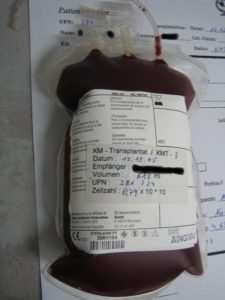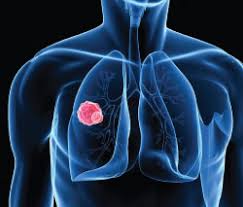Lung Cancer Patients treated at academic centers also had a lower risk of death;4-year Overall Survival rates were 25% and 19% among patients treated at academic and non-academic centers, respectively
Where you get your lung cancer can make a real difference. Over the years I have learned that hospitals and oncologists often specialize in one or more cancers. While this may sound obvious, this idea didn’t occur to me when I was diagnosed with my own cancer in early 1994.

I had an operation to remove a “growth,” was told that the “growth” was multiple myeloma and off I went. When my oncologist suggested I undergo an autologous stem cell transplant checking to see if my hospital, University Hospitals of Cleveland, was experienced at this complicated procedure never entered my mind.
If you have been diagnosed with lung cancer, at any stage, studies show that where you are treated can make a significant difference. According to the study linked and excerpted below, lung cancer patients can expect to live, on average, more than 25% longer if you are treated at an academic center rather than a non-academic center.
Further, there are a host of evidence-based, non-conventional therapies that research shows enhances lung cancer chemotherapy and radiation as well.
To Learn More About Lung Cancer- click now
Have you been diagnosed with lung cancer? I am both a cancer survivor and cancer coach. To learn more about both conventional and non-conventional lung cancer therapies please scroll down the page, post a question or comment and I will reply to you ASAP.
thank you,
David Emerson
- Cancer Survivor
- Cancer Coach
- Director PeopleBeatingCancer
Recommended Reading:
“Researchers accessed and compiled the data from the National Cancer Database (NCDB) of 1,150,722 patients with NSCLC and separated them into 2 arms by receipt of initial treatment at an academic center (31.5%) and from a non-academic center (68.5%). Several baseline characteristics were different between the 2 groups, including age, race, comorbidity score, cancer stage, median income, course of treatment, and distance from treatment center…
Patients treated at academic centers also had a lower risk of death (hazard ratio [HR], 0.91; 95% CI, 0.906-0.919; P < .001); 4-year OS rates were 25% and 19% among patients treated at academic and non-academic centers, respectively (P < .001).
The authors concluded that “factors influencing treatment facility choice should be addressed for easier access to academic centers.”
“Hospital volume was significantly associated with 30-day mortality…”Overall survival with lung cancer may be improved by initial treatment at an academic center rather than a non-academic facility…”
The same can be said for every other procedure that I have researched- lumpectomies, mastectomies, prostatectomies, etc. The more experience that a doctor gets performing a procedure, the fewer mistakes he/she makes.
If you have been diagnosed with lung cancer, no matter the stage, please ask your doctor how many pulmonary resections his/her hospital performs annually. Nothing personal, you are simply asking about experience. Further, academic centers have, on average, better overall survival statistics for lung cancer.
Finally, lung cancer patients can benefit from evidence-based, non-conventional therapies before, during and after their surgery. I am both a cancer survivor and cancer coach. I live in complete remission from my “incurable” cancer by living an anti-cancer lifestyle through nutrition, supplementation and other lifestyle therapies.
Have you been diagnosed with lung cancer? To learn more about evidence-based, non-toxic therapies, please scroll down the page, post a question or comment and I will reply to you ASAP.
“OBJECTIVE:To evaluate 30-day and 90-day mortality after major pulmonary resection for lung cancer including the relationship to hospital volume...
There were 124,418 major pulmonary resections identified in 1233 facilities.
The 30-day mortality rate was 2.8%.
The 90-day mortality rate was 5.4%.
Hospital volume was significantly associated with 30-day mortality, with a mortality rate of 3.7% for volumes less than 10, and 1.7% for volumes of 90 or more. Other variables significantly associated with 30-day mortality include older age, male sex, higher stage, pneumonectomy, a previous primary cancer, and multiple comorbidities…
CONCLUSIONS: Mortality at 30 and 90 days and hospital volume should be monitored by institutions performing major pulmonary resection and benchmarked against hospitals performing at least 30 resections per year.
“Overall survival with non–small cell lung cancer (NSCLC) may be improved by initial treatment at an academic center rather than a non-academic facility…
Researchers accessed and compiled the data from the National Cancer Database (NCDB) of 1,150,722 patients with NSCLC and separated them into 2 arms by receipt of initial treatment at an academic center (31.5%) and from a non-academic center (68.5%)…




